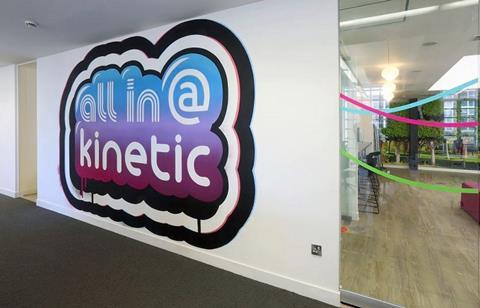
For out-of-home advertising agency Kinetic, managing and supporting the mental health and wellbeing of its 100 employees has been a priority throughout the pandemic, explains account manager and mental health ‘ally’, or first aider, Emily Smith.
“Like a lot of [organisations], when Covid first hit our workload definitely dropped. Because everyone was being told to stay at home, out-of-home advertising was suddenly much less of a priority for people. However, rather than just letting us sit at home and wallow, the [organisation] put together a really good training schedule, both work-related training and resilience training,” she points out.
The fact the employer had already set up a network of mental health allies in 2019 meant employees had a resource they could turn to for confidential advice as well as signposting to other support. Alongside this, Kinetic operates ‘safe rooms’ where people can come together to discuss concerns or challenges in confidence and has run training around issues such as suicide awareness.
Last summer, Kinetic also signed up to Tictrac. The app-based platform offers a wide range of tools and resources around mental, social, physical and financial health but Kinetic has used it in particular to encourage employees to take part in step challenges.
“With everyone working from home it has been really important to encourage people to get out of the house. It is amazing how it brings out everyone’s competitiveness and is something often discussed at our weekly meetings,” says Smith. “As well as the physical benefits, personally I notice a huge difference mentally if I don’t leave the house, and I think everyone feels that. So having that extra motivation has been really valuable.”
The organisation runs pulse surveys to gather feedback on what it is offering, the mental health allies run regular panels, while Kinetic also holds ‘town hall’ meetings and Q&A sessions.
“There has been so much uncertainty over the last year. It’s been really important to find out how people are getting on rather than just assume,” explains Smith. “As well as training and ‘live’ resources, it is important to have tools in place that people can use in their own time. It is about having a good balance of resources that people can tap into whenever they are ready,” she adds.











